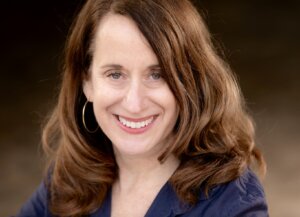Israeli teachers who criticize the war have been yanked from the classroom — and thrown in jail
‘There’s good people and there’s bad people,’ said a right-wing activist who has targeted dissidents on social media
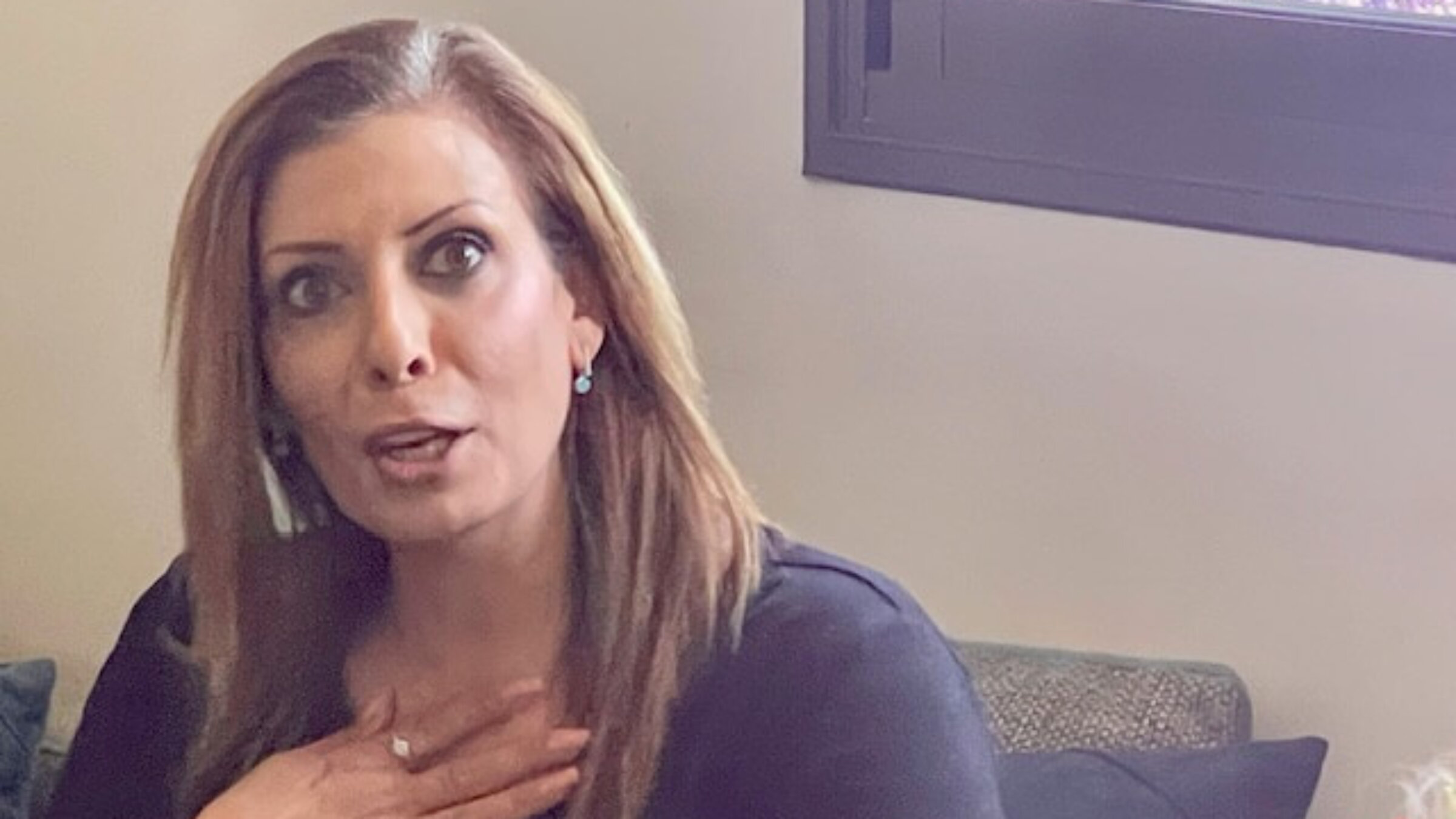
Sabreen Msarwi found out on Facebook that she lost her job teaching middle school last week. Her transgression: marching in a Nakba demonstration on her day off. Photo by Susan Greene
TAYIBE, Israel — Sabreen Msarwi lost her job teaching Arabic at a middle school in Ganei Tikva last week after marching, as she does every year, to commemorate the Nakba, the displacement of some 700,000 Palestinians around Israel’s 1948 founding.
She is one of dozens of Israeli educators, some Palestinian and some Jewish, to be suspended or fired from local schools and universities since Oct. 7 for voicing critical opinions of Israel’s prosecution of the war in Gaza, support for Palestinian resistance, and other views the government finds objectionable. Civil rights groups and defense lawyers count at least 46 indictments over the past seven months of people in academic settings who have expressed dissent, and said that at least 28 of them spent time in jail.
“There is no freedom of speech for teachers just now,” Msarwi, who is 46 and has been teaching for 23 years, told me at her home here in Tayibe, an Arab city of 45,000 in central Israel. “We’re being persecuted for expressing our views.”
In contrast to the Gaza solidarity encampments that sprung up over the last month at colleges and universities across North America, Israeli campuses — where up to 17% of students were Palestinian before the war — have been largely free of public protest. At least 170 students were suspended, expelled or arrested in the weeks after Oct. 7, according to the Association of Arab Students; the group says those crackdowns prompted many Arabs to drop out or not re-enroll.
Firm numbers about sanctions against educators are harder to come by, but the Association of Civil Rights in Israel told me that at least 35 cities, towns and universities have taken disciplinary actions against teachers and professors since October. Like Msawri, they are mostly accused of transgressions outside the classroom: marching in anti-government demonstrations, or posting on social media concern for the people of Gaza, or criticism of Israel’s aggression there, its occupation of the West Bank, or Zionism in general.
The National Security Ministry did not return phone calls about those who have faced arrest and prosecution.

Crackdowns on dissent are common in wartime even in liberal democracies, but Israeli experts say this spate is worse than during previous wars as Israel’s right-wing government worries over the effects dissident educators could have on young people. Critics say conservative activists have seized on the wave of patriotism since Oct. 7 to root out educators they see as troublemakers.
“Freedom of speech is fine, but the people of Israel, they’re saying they don’t want to hear teachers speaking against Israel,” Shai Glick, an Orthodox activist who teaches Torah in Beit Shemesh and has been leading social media efforts to oust activists from schools, said in an interview.
Israel does not have a constitution and lacks explicit protections for free speech and assembly like those outlined in the First Amendment. Its basic laws and court decisions have generally protected those things, but to a lesser degree than in the U.S., especially during wartime.
Although hundreds of thousands of Israelis spent much of the year before Oct. 7 protesting government initiatives to erode democratic institutions, the crackdown on dissent from educators has triggered little protest or public conversation.
‘Academics are easy targets’
The highest-profile case against an educator here is that of Nadera Shalhoub-Kevorkian, a dual citizen of Israel and the U.S. who has taught at Hebrew University for 28 years and authored more than 100 articles and books. She was suspended from the university’s law faculty in March after accusing Israel of genocide and questioning whether Hamas committed sexual violence on Oct. 7, then reinstated — only to be arrested in April on suspicion of inciting terror.
Shalhoub-Kevorkian, who described Israel during a podcast interview earlier this year as a “necrophilic killing machine,” spent a night in jail before a court ordered her release. She declined to be interviewed because her criminal case is pending, but I spoke to her lawyer, Alaa Mahajna.
“Nadera would say the same thing I will — that whatever narrow margin of free speech Israel used to have on campuses has vanished since October,” Mahajna said. “The government is using this war as an excuse to turn people whose views it disapproves of into enemies of the state, and academics are easy targets.”
The university, perhaps Israel’s most prestigious, justified Shalhoub-Kevorkian’s suspension by declaring itself a proud “Zionist institution,” which sparked criticism from academics and civil rights advocates, particularly because it has long touted its inclusivity of Palestinian-Israelis.
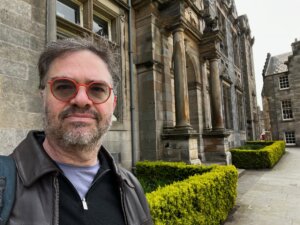
“Israel’s flagship university has shown the world that it is not open for any debate or dialogue that does not toe the line of the Zionist state,” said Uri Horesh, an Israeli Jew who teaches Arabic.
Horesh himself was fired last fall from Achva Academic College, a small school near Ashdod, where he was a senior lecturer in linguistics. He said his ouster was based on social media posts in which he accused Israel of genocide and called to “Free the Gaza ghetto.” He now teaches at the University of St. Andrews in Scotland.
The National Union of Israeli Students called in October for the removal of students or faculty members who express solidarity with Hamas’ attacks, and encouraged anonymous reporting of anyone suspected of supporting terror. Shortly after, a throng encircled the dormitories of Arab Israeli students at Netanya Academic College, chanting “Death to Arabs” and “Go back to Gaza.”
At the urging of the Ministry of Education, several schools and universities throughout Israel have referred complaints against educators to the national police. The police department is overseen by Itamar Ben-Gvir, the racist and far-right minister who has said Arab citizens expressing disloyalty to Israel “must be expelled.”
The police commissioner, Kobi Shabtai, has had similarly harsh words, saying after an October antiwar protest in Haifa: “Anyone who wishes to identify with Gaza is welcome to — I will put him on the buses that are heading there now.” Civil rights groups and defense lawyers say the police and Ben-Gvir’s national security ministry have shut down social media accounts of some teachers and arrested and interrogated others.
‘I can’t teach under those conditions’
One was Meir Baruchin, who has taught high school civics and history for 35 years, most recently in Petah Tikva, a suburb of Tel Aviv. A day after the October massacre, he posted on Facebook questioning the occupation and sympathizing with women and children killed in Gaza. The post has since been taken down.
A slew of parents of his students, along with right-wing activists, responded in the comments accusing him of sympathizing with Hamas, which Baruchin, who is 62, told me he decidedly does not.
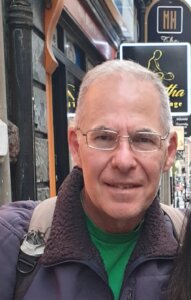
Baruchin was fired in late October from Yitzhak Shamir High School. He said he was categorized as a high-risk detainee, spent four days in solitary confinement and had his home and electronic devices searched by the police.
He also said his arms and legs were tied while he was interrogated on suspicion of intent to disrupt public order and to commit treason. But no charges were ultimately filed, and a judge fined municipal and state governments for mistreating him and in January ordered Petah Tikva to give him his job back.
But Baruchin, whose son is serving in a combat unit of the Israel Defense Forces, said that when he returned to the classroom, he faced intense harassment.
“I was literally under siege inside the teachers’ room,” he told me. “Students cursing me, spitting at me, wishing I have cancer in every part of my body, wishing me and my kids to die.”
He quit shortly after. “Unfortunately, I can’t teach under those conditions,” Baruchin explained. “Nobody can.”
He and three other educators I interviewed blamed Glick for their oustings. Glick has worked through email and social media alerts to stir up grassroots movements to cancel leftist events and silence groups and people he deems to be unpatriotic. A Haaretz profile from 2020 dubbed Glick, now 37, “Israel’s ‘Censor-in-Chief.’”
In an interview, Glick defined his work — and that of a group he runs called Btsalmo — as human rights activism “in the spirit of Jewish ethical traditions.”
“Most of the human rights organizations speaking out right now are only speaking on the civilians in Gaza,” he said. “They’re not speaking about the people in Israel who need to understand the terrorist evil.
“There’s two sides with what is going on in the world. There’s good people and there’s bad people,” he added. “If we see any teacher who support terrorism or say they understand terrorists, we have to fight them.”
Another organization, called Im Tirtzu, keeps an online blacklist it calls “Know the Anti-Zionist Israeli Professor.” The website urges students to avoid their classes, and universities to oust them.
“By virtue of being Israeli, these radical professors are viewed by the outside observer as neutral and credible authorities on matters concerning Israel,” the website reads. “This unearned credibility is then used by Israel-haters worldwide to attack Israel, justifying their bigotry with the logic, ‘Israelis themselves are the ones saying these things, not me!’’’
It continues, “Furthermore, many of these extreme professors cynically bash Israel while using the good name of the Israeli universities that employ them.”
Alon Harel, a Hebrew University law professor whose name is on the list, said Im Tirzu and Glick take the approach “that people who get their salaries from the state ought to be loyal to the state, which people confuse with meaning they ought to be loyal to the government.”
“It’s dangerous, but it works and has created quite the chilling effect of academics suppressing their opinions,” Harel told me. “I am disposed to think there are very strong sentiments here that could lead us to become an authoritarian state. We are not there yet. I think we are getting there very, very quickly.”
‘Like a fire in the very dry grass’
Warda Sada was fired from her position teaching early childhood pedagogy at the Kaye Academic College of Education in Be’er Sheva after a former student took a screenshot of her Facebook profile, which included the Palestinian flag. That symbol is a trigger for many Jewish Israelis, especially after Oct. 7.
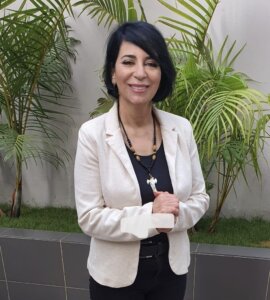
Sada’s critics also shared a few of her Facebook posts citing “the brutality of the occupation,” and condemning violence on both sides of the war and the killing of innocent civilians. Those posts are no longer visible. She said some Jewish colleagues posted similar things and were not punished.
“All the people who shared my post didn’t read my posts,” she told me. “They were saying I was dancing on the blood of Israelis and it was just going viral like a fire in the very dry grass.”
“I don’t just speak because I feel personally about human rights or because, as an Arab-Palestinian in Israel, there has never been full democracy for me,” Sada added. “I speak because academics have the first responsibility to change these paths, to help create more better environments and make it better so we can educate kids that will be future good citizens.”
Msarwi, the Arabic teacher from Tayibe who was fired last week, said she had made a point of attending a Memorial Day ceremony to support her Jewish students at the Rishonim Middle School in nearby Ganei Tikva. It is not a day that’s personally meaningful to her, but she has learned over her years in the classroom the importance of “honoring the kids’ traditions” and, as she put it, “sharing their pain.”
Msarwi spent the next morning, when schools were closed for Israel’s Independence Day, marching with her own children at a nearby community torn apart during the Nakba, the Arabic word for catastrophe — which is how Palestinians understand the destruction of their homeland and the history of their displacement.
“I want my children to know this is a huge unsolved issue,” she told me.
The Nakba is generally not taught in Israel’s public schools. And Msarwi — an activist involved with the coexistence movement called Standing Together — does not bring it up in her classes.
But because the Nakba is part of her family’s identity, she participates in the annual march to former Palestinian communities wiped out in the Nakba without apology. This year, she returned home to find that a photo of her marching that morning had gone viral, with Glick’s help, and along with it comments telling her to “Go to Gaza” and “I wish you were dead.”
“Kick that whore teacher out of the Ganei Tikva school,” posted Daniel Amram, who identifies himself as a journalist and internet personality.
Later that day, Msarwi saw a Facebook post indicating that she had been suspended from the job she has loved for five years, ripped from the students she has relished teaching her language.
Her friends, Muslim and Jewish, surrounded her with support last week, filling her living room with pastries, fruit and hugs.
Asked what she wants people to know about her situation, she said, “That this is sad for me.”
“And the way people are discounted, written off in this country, that it is so awful.”
Clarification: The original version of this article inappropriately identified Shai Glick as a rabbi. He is not an ordained rabbi, but said that he teaches Torah and leads some services at a synagogue in Beit Shemesh
A message from our Publisher & CEO Rachel Fishman Feddersen

I hope you appreciated this article. Before you go, I’d like to ask you to please support the Forward’s award-winning, nonprofit journalism so that we can be prepared for whatever news 2025 brings.
At a time when other newsrooms are closing or cutting back, the Forward has removed its paywall and invested additional resources to report on the ground from Israel and around the U.S. on the impact of the war, rising antisemitism and polarized discourse.
Readers like you make it all possible. Support our work by becoming a Forward Member and connect with our journalism and your community.
— Rachel Fishman Feddersen, Publisher and CEO



